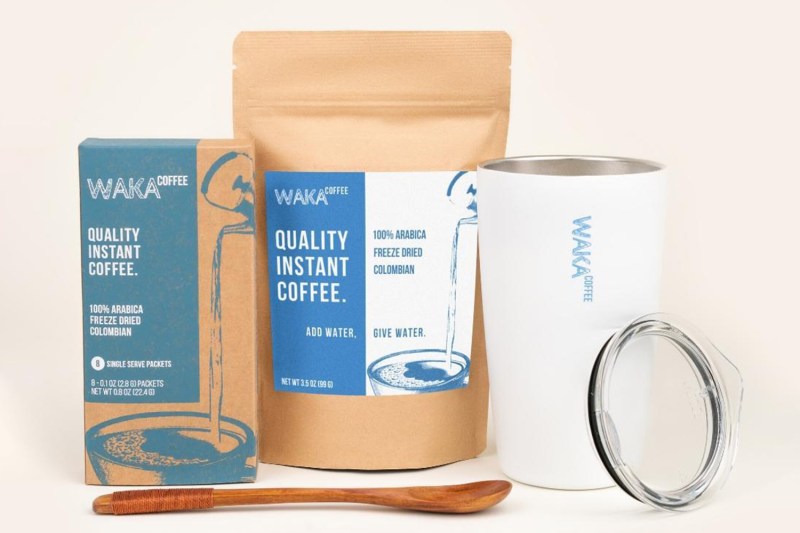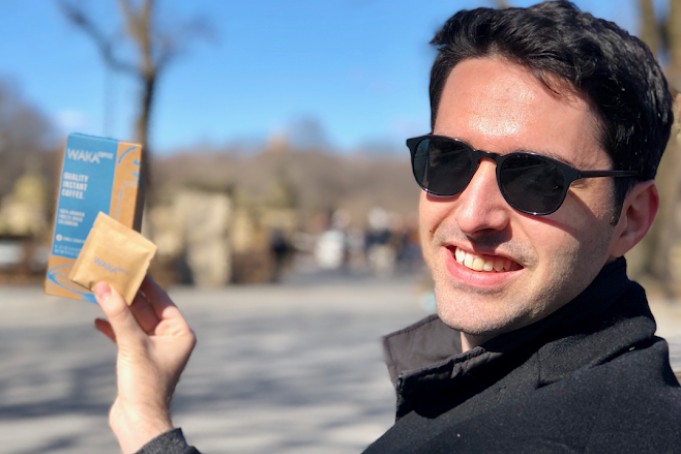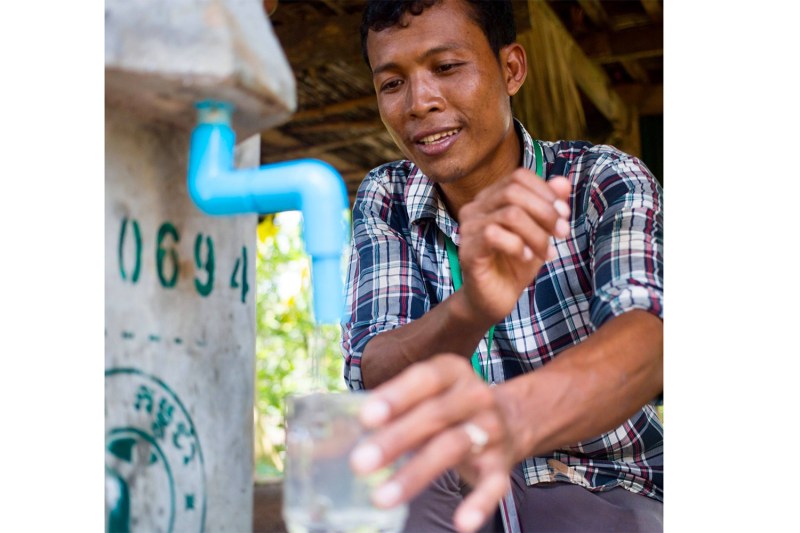
When David Kovalevski, the founder of Waka Coffee, started learning about the coffee industry, he opened his eyes to a startling fact about the java industry. According to Unesco, it takes about 37 gallons of water to produce a single cup of coffee. It’s a thirsty trade, with water used to wash the coffee cherries and submerge the crop to separate the ripe yield from the unripe stuff. The beans are then hit with more fresh water to induce fermentation. And this is to say nothing of irrigation needs or the water usage associated with creating packaging and shipping the product. Learning about this wasteful process set him out to establish a process to combat the waste.
Related Readings
Meet the Founder, David Kovalevski

After studying digital marketing at college in New York and researching the coffee realm in between courses, Kovalevski refined his dream some. He would stick with coffee but go the instant route. The time and cash consumed from coffee runs while a student with a full-time job was significant, especially given Big Apple prices. He envisioned a lighting-fast cup of joe made with just the addition of water — one that tasted like it came from the deft hands of a seasoned barista.
” When I was thinking about Waka Coffee I knew we had to give back somehow or change our own behavior to compensate for that waste,” Kovalevski says. “As a new and small player in the coffee industry, we unfortunately can’t control the entire process at this point. However, we still wanted to give back in a meaningful way that is directly correlated to that somewhat wasteful process.”
The Add Water, Give Water Campaign

From day one, Waka has partnered with the non-profit charity:water as part of its Add Water, Give Water campaign. In other words, the brand has donated 4% of its profits to support clean water projects all over the planet, including coffee-centric places like Asia, Africa, and Central and South America. In turn, the non-profit uses the entirety of its proceeds for its important work.
Kovalevski notes that the issue is twofold. For starters, water is a precious resource and needs to be conserved. This is all the more important amid a warming planet subject to increasingly frequent droughts. Secondly, in far too many places, there’s no clean water for drinking. That’s a tough pill to swallow when you operate in an industry like coffee, which has a history of leaving the spigot on.
Waka hopes to donate even more to charity:water in the future, financially and physically. Kovalevski says the outfit is incredibly transparent, showing where each dollar is spent via photos and GPS coordinates. The non-profit’s partners on the ground coordinate sanitation and hygiene training as well as local water committees to keep the clean water flowing and the practices in place.
It doesn’t stop there. Waka has actively supported the medical world during the pandemic, donating coffee to hospitals all over the country. Kovalevski is looking forward to doing more in and around Waka’s headquarters in Los Angeles as well.
“There are many things we could make a difference with in our own backyard like the homeless crisis, social inequality, assisting immigrants and refugees, and much more,” he says. “My dream is to have the means and the team to support these causes as well.”
How You Can Support
As the company grows, it will aim to grow its philanthropic efforts as well. It’s not only part of being a mindful company in 2021 but part of a growing and inspiring trend among businesses to be transparent and active. It’s no longer enough to make a tasty IPA or balanced cup of coffee. You need to engage with the world and try to make it better by taking on any number of vital social, environmental, and racial justice issues.
“We know that we are a small brand and unfortunately can’t change the world right now, or even be as good as we would have wanted to be,” Kovalevski admits. “But, we definitely make an effort in places we can make a difference, taking into consideration other causes beyond immediate profitability, like taking care of our environment.”
Whether you like an easy-to-make cup of instant coffee or a hot pour of decaf, Waka’s got you covered. Better, the brand is giving back and constantly looking to lead by example.
This feature is part of our Brands Giving Back Series, where we’ll bring you all the latest news on brands that are giving back to the community, and how you can support by shopping online.


